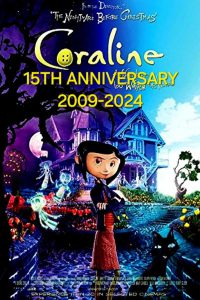Crystal Killingsworth
Staff Writer/Photographer
Some fifty odd years ago, to be black and to be female were two of the most restricting characteristics that could be associated with a person. If you were African-American, then you were considered inferior to Caucasians and were limited in certain liberties or rights that were awarded to everyone. Consequently, if you were unfortunate enough to also be female, then you were not only in bondage the of social status but of sexual inferiority also.
Since then, African -Americans have overcome restrictions in politics, diplomacy, science, and literature and have made extraordinary marks in history.
According to www.Infoplease.com, Phillis Wheatley, Gwendolyn Elizabeth Brooks, and Toni Morrison are just a few of African-American women who have become the predecessors of literature who overcame barriers in literature that paved a new future in writing for future generations.
 Phillis Wheatley (1753?-1784): Phillis Wheatley perhaps set the precedent for all future African American writers as she was the first black slave woman to obtain relevance in the United States by getting her poetry published. The eighteenth century poet was originally born in Africa, but became a house slave for a Boston couple who ironically enough recognized her intelligence and wit and decided to educate and encourage her writings. The publication of “Poems of Various Subjects, Religious and Moral” a collection of thirty-nine poems brought her fame from both England and the American Colonies, political leaders like President George Washington, and other African American writers both past and present. In her poems she wrote inconspicuously about the struggles of enslavement and the miracles of religion to help cope with it. After the death of her master, Wheatley was emancipated and attempted to start a family. However, after the imprisonment of her husband, and the death of two of her infant babies, Wheatley fell into poverty and ultimately died of an illness. Wheatley broke down lot of barriers when she was the first woman to be published and opened the door for many future A. A. writers today.
Phillis Wheatley (1753?-1784): Phillis Wheatley perhaps set the precedent for all future African American writers as she was the first black slave woman to obtain relevance in the United States by getting her poetry published. The eighteenth century poet was originally born in Africa, but became a house slave for a Boston couple who ironically enough recognized her intelligence and wit and decided to educate and encourage her writings. The publication of “Poems of Various Subjects, Religious and Moral” a collection of thirty-nine poems brought her fame from both England and the American Colonies, political leaders like President George Washington, and other African American writers both past and present. In her poems she wrote inconspicuously about the struggles of enslavement and the miracles of religion to help cope with it. After the death of her master, Wheatley was emancipated and attempted to start a family. However, after the imprisonment of her husband, and the death of two of her infant babies, Wheatley fell into poverty and ultimately died of an illness. Wheatley broke down lot of barriers when she was the first woman to be published and opened the door for many future A. A. writers today.
Shanel James, a 20-year-old English major from Magnolia, Miss. says that she has high regard for Phillis Wheatley and he plight to become a published writer. “To be the first black poet in America to publish a book, and to do this while still a slave, a female slave at that, is something I greatly admire,” said James. James went on to say that she too would like to have her written material published. “Her works also inspire me to continue writing my poems and stories so that I too can one day get published,” said James.
 Gwendolyn Elizabeth Brooks (1917-2000): Gwendolyn Elizabeth Brooks was as impressive of a writer as she was an activist. Brooks, who grew up in the slums of Chicago, created her own style of writing utilizing free verse, ballads, and sonnets to speak out on oppression of blacks and women in America. The American Poet went on to break racial barriers when she wrote about African Americans being spurned and prejudiced by their own people because of arguments of darker and lighter complexions. Through her unusual technique of writing and subject matter, Brooks earned the status of being the first Black woman to win a Pulitzer Prize. The coveted prize was awarded to her for the poem Annie Allen which follows the experiences of a young black girl as she enters into adulthood. After some time, she took on a new tone and vision of writing and began writing in more simple writing styles. These works include her poem Riot where she writes in street dialect and In the Mecca were she writes more radically. Brooks spent the remainder of her time encouraging others to write by sponsoring writers’ workshops in Chicago and poetry contests at prisons. In 1990 her works were permanently stored in Chicago State University established in the Gwendolyn Brooks Center on its campus.
Gwendolyn Elizabeth Brooks (1917-2000): Gwendolyn Elizabeth Brooks was as impressive of a writer as she was an activist. Brooks, who grew up in the slums of Chicago, created her own style of writing utilizing free verse, ballads, and sonnets to speak out on oppression of blacks and women in America. The American Poet went on to break racial barriers when she wrote about African Americans being spurned and prejudiced by their own people because of arguments of darker and lighter complexions. Through her unusual technique of writing and subject matter, Brooks earned the status of being the first Black woman to win a Pulitzer Prize. The coveted prize was awarded to her for the poem Annie Allen which follows the experiences of a young black girl as she enters into adulthood. After some time, she took on a new tone and vision of writing and began writing in more simple writing styles. These works include her poem Riot where she writes in street dialect and In the Mecca were she writes more radically. Brooks spent the remainder of her time encouraging others to write by sponsoring writers’ workshops in Chicago and poetry contests at prisons. In 1990 her works were permanently stored in Chicago State University established in the Gwendolyn Brooks Center on its campus.
 Toni Morrison (1931-Present): One could say that Toni Morrison, originally named Chloe Anthony Wofford, was a literary giant of the 1980s and 1990s. She started her trek in literature after graduating from Howard University with her B.A. 1953 and later her M.F.A. at Cornell in 1955. Her fiction is renowned for its poetic speech, extensive detail, emotional intensity, and insightful observation of American life as viewed from a variety of African-American perspectives. Her very first novel, The Bluest Eye in 1979 which involves girl ruined by a racist society and its violence, gave her recognition in the literary world. However, she became established a one of America’s leading novelists after her novel Song of Solomon in 1977 earned her the National Book Award. The book entails a middle-class man who achieves self-knowledge through the discovery of his rural black heritage. Her later fiction includes Beloved in 1987, which earned her a Pulitzer Prize which depicts a powerful account of mother love, murder, and the legacy of slavery; and Jazz (1992), a tale of love and murder set in Harlem in the 1920s. Some of her other novels are Sula, Tar Baby ,Paradise, Love, A Mercy and Home. In addition to her academic merits she has Morrison has held a plethora of academic offices such including who was being an influential editor at Random House for nearly two decades, a professor at Princeton University since 1989 and was the founder (1994) of the Princeton Atelier, a writers’ and performers’ workshop. Her book Beloved won the 1988 Pulitzer Prize; in 1993 she was awarded the Nobel Prize for Literature.
Toni Morrison (1931-Present): One could say that Toni Morrison, originally named Chloe Anthony Wofford, was a literary giant of the 1980s and 1990s. She started her trek in literature after graduating from Howard University with her B.A. 1953 and later her M.F.A. at Cornell in 1955. Her fiction is renowned for its poetic speech, extensive detail, emotional intensity, and insightful observation of American life as viewed from a variety of African-American perspectives. Her very first novel, The Bluest Eye in 1979 which involves girl ruined by a racist society and its violence, gave her recognition in the literary world. However, she became established a one of America’s leading novelists after her novel Song of Solomon in 1977 earned her the National Book Award. The book entails a middle-class man who achieves self-knowledge through the discovery of his rural black heritage. Her later fiction includes Beloved in 1987, which earned her a Pulitzer Prize which depicts a powerful account of mother love, murder, and the legacy of slavery; and Jazz (1992), a tale of love and murder set in Harlem in the 1920s. Some of her other novels are Sula, Tar Baby ,Paradise, Love, A Mercy and Home. In addition to her academic merits she has Morrison has held a plethora of academic offices such including who was being an influential editor at Random House for nearly two decades, a professor at Princeton University since 1989 and was the founder (1994) of the Princeton Atelier, a writers’ and performers’ workshop. Her book Beloved won the 1988 Pulitzer Prize; in 1993 she was awarded the Nobel Prize for Literature.
Dominique Triplett, a 21-year-old senior Double major in English and Mass Communications from Jackson, Miss, says that she admires Toni Morrison’s unique technique of writing in some of the works she has viewed. “Her style of writing in my opinion is very complex especially with works such as Beloved and the Bluest Eye,” said Triplett.
The legendary writers above established much in their lifetime and their legacy continues to encourage and inspire other writers.





Be First to Comment